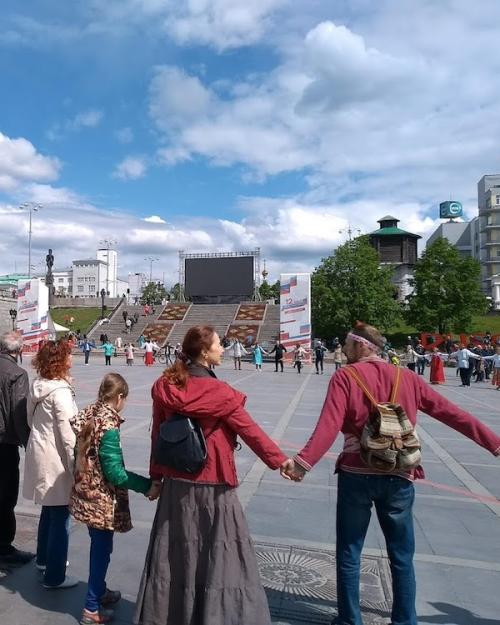Varvara, a 66-year-old retired factory worker in Kazan, Russia, keeps faith in her homeland despite a life of suffering and loss. “It was a tough time,” she said. “The one thing that makes me happy is that we got through it and now I still have the hope that Russia will always be there.”
In contrast, Ivan, a 33-year-old software developer based in Ekaterinburg, Russia, dismisses official celebrations of Russia’s past. “All Russians are like people from an orphanage,” he said in a 2018 interview with Cornell sociologist Leila Wilmers. “They have only today because they want to forget their past.”
In a recent study of nationalism, Wilmers, postdoctoral associate in sociology, College of Arts and Sciences, explores how individuals, such as Varvara and Ivan, rethink parts of nationalist ideology in making sense of uncertainty and disruptive social change. Her paper, “How we Engage the Principles of Nationalism in Making Sense of Uncertainty and Disruptive Social Change,” published in Ethnic and Racial Studies Feb. 7.
In times of crisis, Wilmers said, people rally around nationalist causes. Populist movements are able to exploit nationalist messages among people facing economic and cultural insecurities. Yet nationalist fervor is not an automatic response to crisis, she said, but one that arises through conflicted thinking between nationalist beliefs and a person’s real life.
“Nationalism is a deeply rooted ideology with a daily presence that is quietly taken for granted in all of our lives,” Wilmers said. “If we want to understand how nationalist grievances gain traction, we need to attend to the micro-level tensions that people experience between reality and particular principles of nationalist ideology in certain conditions.”
Wilmers noted that it’s important to understand the poignancy of conflicted individual reflections on the nation in light of developments in the region since the study was conducted.
Principles of the nation’s continuity and progress, and national myths that support them, are coming up against reality in new ways for Russians and Ukrainians, she said.
“These ideological tensions only heighten the emotional impact of war,” Wilmers said. “Leaders on both sides seek to use and control these tensions in rallying their citizens’ support. However, this is particularly key for Russia’s president, Vladimir Putin, given that Russians have not experienced the territorial attacks that bring a physical immediacy to the idea of defending the continuity of a threatened nation.”
Wilmers based her findings on her 2017-18 study, conducted in Russian, of 68 ordinary people in Kazan and Ekaterinburg, two major cities that have seen rapid development in the post-Soviet period. From all the interviews, she chose to focus on two with contrasting backgrounds and political views – Varvara and Ivan – to illustrate how nationalist principles can come under question in making sense of unsettling times.
For both Varvara and Ivan, negotiating dilemmas of nationalism is a complex and shifting personal process involving both emotion and rationalization, Wilmers wrote.
Varvara, whose father, uncle and husband died in Russian military operations and whose grandfathers were purged and rehabilitated during the Stalin era, asserts both progress and continuity, Wilmers said, “but she also validates the experiences of personal and collective tragedy that necessitate such affirmations.”
Meanwhile in Ivan’s narrative, “nostalgia for elusive certainties vies with assertions of the betrayal of grand narratives of national continuity and progress by the realities of lived experience.”
The personal, micro-level perspective can also help deepen understanding of the importance of nationalism in other societies, Wilmers said, including the U.S. today. For example, she believes there is polarization around the teaching of critical race theory (CRT) in schools because narratives acknowledging the place of racism in America are gaining traction.
“If we can identify particular tensions around nationalist principles that people experience in thinking about this divide and highlight the personal reflective processes behind attitudes to CRT,” Wilmers said, “we will be better equipped to foster constructive debate.”
This work was supported by the Centre for Research in Communication and Culture at Loughborough University, and by the Royal Geographical Society with a Dudley Stamp Memorial Award.




